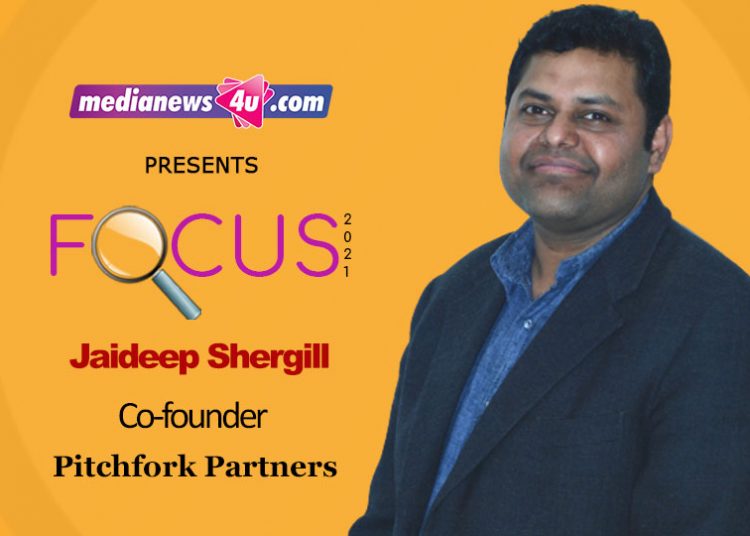2020 is done, 2021 is a whole new challenge
Jaideep Shergill – Co-founder, Pitchfork Partners
It would be difficult to imagine a year more challenging than 2020. It began with economic growth slowing to worrying levels, and then came the COVID-19 pandemic and all its consequences. The lockdown hit the brakes on most industries and economic growth fell off a cliff to enter negative territory for the first time in living memory. Recently, it emerged that India experienced a technical recession for the first time ever.
No industry was spared of the carnage. As revenues dried up, so did businesses’ spending on marketing activities. The communication industry was badly hit, much like the media sector, with dipping revenues and client withdrawals becoming the norm.
Today, things seem to have stabilised and the free fall arrested – even if growth is a distant possibility. The focus now is to consolidate as much as possible and transform our business quickly so that it’s ready for a post-pandemic consumer, industry and economy.
For Pitchfork Partners, these are the top priorities for 2021:
Adapting to the new media and audience landscape: The pandemic has re-moulded the media industry. It will never be the same again. Even before the pandemic, there was a steady shift of audiences to digital platforms. That trend has now been accelerated. The new trends in media consumption include greater collective viewing – as entire families stay at home and work from there – and the emergence of new prime times, such as around noon.
Several newspaper titles – which were intertwined with our everyday lives – have shut altogether while others have closed editions and bureaus, laying off hundreds of journalists and support staff.
So, as a communication consultancy, when we plot media strategy for our clients, we are dealing with a new reality. We have to be able to understand the media being consumed now, how and when it is being consumed, and how brands can engage with them to reach their audiences. We have to understand also how audience’s expectations have changed. What do they expect from brands now and how we can help clients fulfil those expectations?
Finding new revenue streams: We can no longer afford to be casual about offering integrated solutions. We have to deliver via paid, earned, shared and owned platforms – depending on what the client’s objectives are. And by this I mean the client’s business objectives. Communication is even more central to the achievement of commercial goals – making it a truly strategic activity.
This places an even greater responsibility on the shoulders of communication agencies. The recession has meant that clients no longer have the luxury of spending money on campaigns that don’t work. Returns simply have to be squeezed out of every rupee spent.
The intersection of technology and content: The future lies in using technology – from new platforms to data – to reach the right audiences quickly and in a cost-effective manner. Therefore, we must know how to create relevant content that can be personalised and targeted through programmatic tools to the audience.
While this is being implemented by new-age digital agencies, we have to be in a position to advise clients on how to use these new tools. We also should partner with agencies that can deliver this to deliver an amalgam of great strategy and execution.
Displaying ROI better: This has been an incomplete agenda of the communication industry. For years, we’ve struggled to put in place an effective measurement system – one that shows clearly the value we deliver. If the days of us measuring media output alone were fading before the pandemic, they are firmly a thing of the past now.
Today, clients are trying to figure out how engaging with us will help them achieve critical business objectives. That is why we’re engaging a lot more with CEOs and boards now. That is also why we are now part of business planning a lot more than we used to be.
The question is how do we show that our work helps with business priorities. We’ll need to figure out the answer soon.
Finding and retaining the right talent: There has never been a dearth if applicants for jobs. There has, however, always been a dearth of applicants with the skills required for communication in this age. The industry has for long faced a skill shortage and, to be fair, it has tried to deal with it by instituting training programmes, tying up with educational institutes to formulate syllabi, etc.
The need is even more urgent now. We simply will not be able to deliver without the expertise this new world of business requires.
If we can achieve these objectives over the next year, I am confident that we will emerge a consultancy that is ready for whatever the next decade throws at us.

















